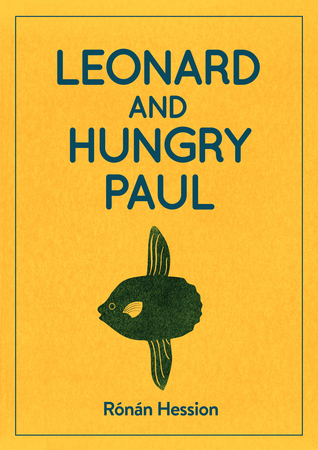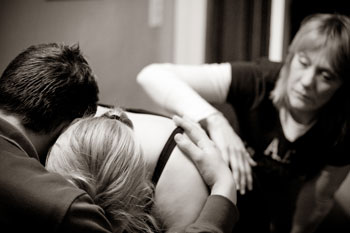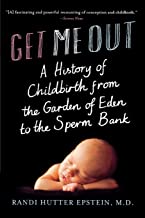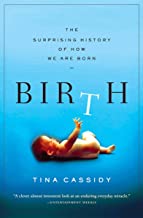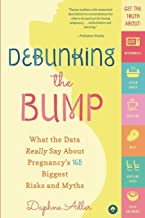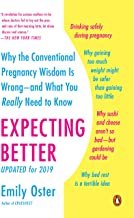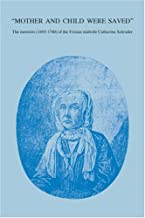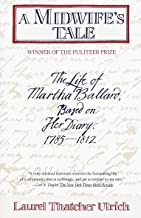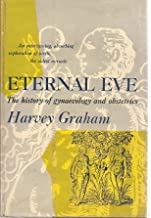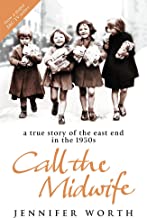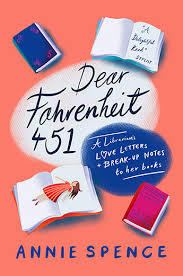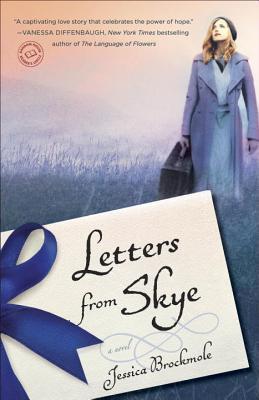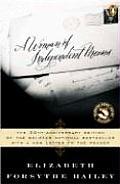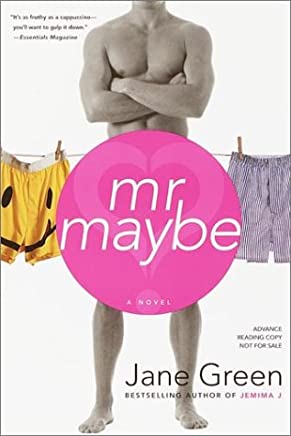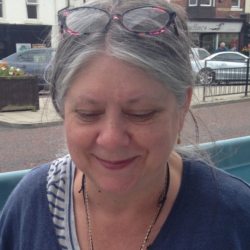This is wonderful feel-good book surrounding the friendship between Leonard and Hungry Paul--two introverted guys making their various ways out into society and relationships.
I have held off on reading this 8th book in the Outlander series as so far it is the last published. The author is hard at work on the 9th book and although she had hoped publish sometime in 2019--it is now 2021 with no publication date in sight. I can wait no longer--this is exactly the kind of immersive book reading experience that "my heart" is longing for right now--so I am giving into its solace and escaping once again into this fabulous world. It did not disappoint!
I have been spending my reading life in Paris of late but now my reading sees me heading off into the back of the house lives of some famous chefs and food writers. The two titles I am starting with keep me both in Paris and finally gets me to read a book that has languished for many years on my shelf. This is a very personal category as I spent many years "back of the house" in many restaurant kitchens, my life has moved on--but I am still an avid home cook. You can follow my cooking adventures in Gourmappetit.
This is one book with a ton of twists, in my opinion maybe even a couple too many, but nevertheless you are very reluctant to put it down until you are done. I successfully avoided most of my family during Thanksgiving because my nose was pretty much always stuck in this book. Read between the lies, might have been a better title--you can't trust anyone or anything in this book. I will definitely read their next book, if only to see if they did manage to leave any plot twists behind for the future use.
The author obviously used both public records and personal letters from the early 1500's to pen her comprehensive factual version of the tumultuous lives of Henry VIII and the six women he took as wives. I like Ms. Weir, her books are very readable and I certainly learned a lot, but sometimes it seems just a collection of lists and historical records. I did some fact checking and it turns out that other Tudor scholars seem dubious about her work. No doubt, way more accurate than HBO's version: The Tudors. I will have to read deeper--darn the luck.
All things Tudor...I wanted to read a biography of Elizabeth Tudor (the daughter of Anne Boylen and Henry VIII) but to get the whole picture from Alison Weir you must start with this book that chronicles Elizabeth's childhood up until she assumed the monarchy.
I find Elizabeth Tudor a fascinating woman, indeed at the point in history, power was held by strong women--Elizabeth Tudor, Mary, Queen of Scots, and Catherine di Medici-- to name a few. I will at some point read more about Queen Elizabeth.
I feel that this reading list requires a bit of my background story, so here goes:
I am a yoga teacher that specializes in Prenatal Yoga and Childbirth Education. I am also a Birth Doula. I got all the required trainings and read all of the recommended reading lists from DONA to Lamaze to the more "natural" Inspired Birth but I still felt my education was lacking and that there were some elemental facts that I was missing.
I also feel compelled to build a Yoga based labor pain management system and to build it I need better understanding. I envision a helpful practice--more yoga, more calm, more practical with proven simple labor tools that have strong physiological and yogic backgrounds.
BUT--something about this business of having babies was setting off alarm bells in my head-- I was/am continuing to notice what seems to be huge disconnects from what I was reading in various pregnancy/childbirth books and what I had learned during my trainings--to what I was seeing in the field as a Birth Doula and what tidbits I read about birth in various history books. I was very confused...I still am--so briefly:
Birth is a basic physiological function of the female body indeed it is the epitome of physiological functions. It is as natural as your heart beating and your lungs breathing. True enough but unless your heart and lungs develop "problems" it does not hurt to breathe or circulate blood through your body, healthy functioning hearts and lungs do not require medical intervention. Many, many, many childbirth education and natural birth books explain that childbirth isn't designed to be painful either.
The reality I was seeing is that we have the medical world on one side claiming childbirth is a dangerous excruciating pathology that needs to be risk-managed with a multitude of medical interventions in order to keep mother pain-free and baby safe— And natural birth activists on the other side claiming that birth is a safe non-painful physiological bodily function that needs no outside intervention. One that is best accomplished in a sun dappled glen beside a baby deer--crunchy granola style.
A bit of eclectic reading led directly to this next dichotomy: I was reading both HypnoBirthing by Marie Mongan and The Six Wives of Henry VIII
by Antonia Fraser. The first book is of course all about using hypnosis techniques to manage your labor and delivery and the second devoted a fair amount of space to the pregnancy travails of Henry's six wives as the primary duty of the Queen during Tudor times was after all to produce heirs to the throne.
On the one side I read that Ms. Mongan considers birth done the Hypnobirthing way to be a perfectly “natural” pain free experience and she believes that women should take lessons about birth from her cat. On the other side, back in the day, when all birth was supposedly “natural”— none of Henry’s wives faired particularly well with Childbirth—they had numerous miscarriages, their babies died, and the 3rd, Jane Seymour, died because of birth complications, most likely childbed fever. Henry VIII’s legacy was one future King and two subsequent Queens out of six wives. Henry's sixth wife may have survived him but she also died after giving birth--again most likely from childbed fever.
Out of this a perfect storm of confusion was born.
Confusion One: Your heart doesn’t hurt when it beats, your lungs don't hurt when you breathe (unless, of course, there is a problem) so why-- if our bodies are designed to give birth do the majority of women find childbirth to be accompanied by the racking pain of contractions and why do they experience so much perineal tearing during delivery?
Confusion Two: Cats, albeit fairly stoic creatures, calmly release kittens, and chimpanzee babies often assist their own births—so why do we do it in hospitals surrounded doctors and hooked up to machines—as if we have not a baby to be born but a disease that needs to be excised and cured? Why is the medical community so convinced that human women “need” so much help?
Confusion Three: If childbirth is supposed to be a safe physiological human body function (like the beating of your heart)—why did so many women and babies die during and immediately after birth?
I thought the appropriate place to start was learning more about the actual history of Childbirth and I freely admit that I started this project a while back. I'm not entirely sure what I expected to find but it sure wasn't what I found in these books...but if you want to follow my path start here--but I warn you once read them they can't be unread and these books will totally change your perspective:
This book was published in 2007 and elsewhere in this list you will find Ms. Block's follow up published in 2019. This was an eye-opening shocking book even when read through the eyes of a doula who has seen these truths in action as part of my profession. It is engrossing, well documented, and comprehensive. Be careful if you decide to read because you cannot un-read it. This book takes a look at childbirth in the age of machines, malpractice, and managed care in America. Ms. Block's investigation reveals that while emergency OB care is essential, we are overusing medical technology at the expense of women's and babies' health. Spoiler alert: It is no better in 2019.
The continuation of my eye opening peek into the history of childbirth and Epstein took me on a superficial journey through the history of childbirth--its fads, fables, superstitions, and the extraordinary. I went in to this reading arc expecting to find something totally different. It is a good read but I definitely preferred Ms. Cassidy's book.
This was the first book on the world history of childbirth to be published in 50 years, this was first published in 2006. From evolution through the epidural and beyond, it is intelligent, impeccably researched, and eye-opening. A must read if you want to look past the collective willful amnesia about actual childbirth--this book explores the physical, anthropological, political, and religious factors that have influenced and continue to influence how women give birth.
I read the whole thing and I can imagine many pregnant women and new moms using this book as a go-to must-have reference book. It helped me to more completely understand various myths and beliefs that surround childbirth. I like to give up to the minute and accurate advice to women I teach and this book is at my side.
FYI this book has been updated to 2019 since my reading. There is a little controversy over the advice given about alcohol consumption. But for the very most part this book helps pregnant women to expect more out of their birth experience. It is a more conversational and readable than Ms. Adler's--Ms. Adler's is a for sure must have scientific reference and Ms. Oster's is all that and an entertaining read to boot.
I will admit that after reading these excellent books that I fled in dismay from the knowledge I had gained. Sometimes it pays to be very careful what you wish for...
Why did I run? Mostly because I have learned that Childbirth as it is practiced today is a mostly man-made catastrophe, particularly in the United States. I use the term "man-made" quite literally. So I stuffed this research project back into a corner of my mind. I instead shifted my focus away from that mess of wrong towards my little bubble where I could perhaps start writing about righting these wrongs.
A favorite altruism of mine: In a world of problems be a solution. So I decided I would go back to the comforts of "being a part of the solution."
This decision worked for a while and I wrote about all the stages and phases of Labor and how to use Yoga to help ease suffering. I wrote about using Movement as a Yoga-Based Birth Skill. This spate of writing helped ease me back into the reasoning that while I may not be able to change Birth in America as a whole--it is certainly in my wheelhouse to help each and every woman who walks through my door to have a calm positive birth experience if she so desires.
My bubble burst (I couldn't resist the pun) when I realized that I needed to write about Premature Rupture of Membranes (PROM) as it was mentioned as a complication numerous times in other of my posts. I started this writing project with the delusion that it would be an easy short factual post. Instead I found that this topic is a minefield of controversy and the post ended up being 20 some pages long.
As a reward for sticking with such a messy complex topic and writing such a long read essay-- I allowed myself an expensive book purchase and read said book as I was going through the editing process. Odd book choice (unless you know me) as a reward-- I understand-- but a very interesting book that cleared up a lot of my wrong thinking about infection during childbirth and in instances of PROM.
FYI: This is an excellent book but incredibly pricey and for the record I paid $65 for a used copy from a London bookstore ($170 on Amazon). Was it worth what I paid for it--absolutely yes. It was worth it to me as I am a birth doula, a childbirth educator, a prenatal yoga teacher, I blog about childbirth, but more than anything I am a woman wondering what the heck has gone so wrong with birth in America today!
According to the back cover: A Black Swan is an event, positive or negative, that is deemed improbable yet causes massive consequences...in this book NNT shows in a playful way that Black Swan events explain almost everything about our world, and yet we--especially the experts--are blind to them.
I found myself giving this book a long slow careful read and not just because of the math. Time and time again I marked passages that reminded me of things that had happened and are happening in Childbirth--so much so that I am pondering the need to take a virtual long slow walk with NNT through these passages--to what end I do not know--but enough so that I am calling my project "The Black Cygnet". Regardless, birth as done by homo sapiens seems to have been slammed by Black Swans since the moment we took the highly improbable notion of standing up on two feet.
While I had certainly gained a lot of knowledge through the above research and reading I still didn't feel ready to write about it and I continued to wonder to what end would any writing that I did actually serve.
I haven't been writing for long but something I am coming to believe is in the power that lays hidden on the shelves of Umberto Eco's Anti-Library--#TBR- all of the knowledge contained in books etc. that you haven't read yet. It is my belief that some projects demand waiting for the right knowledge to appear.
While the stack of books and internet research that I have completed since the above mentioned perfect storm have definitely strengthened my belief that we humans are a weird lot, that history is written by the victorious, and as a species doctors are extremely adverse to change, strongly clinging to beliefs long after they have been proven wrong, time after time--I still believe that my idea needs more time to develop before it comes to fruition. At the deepest level I feel that we are looking at something completely elemental in the wrong way and missing something that is right in front of our noses.
Again I shelved this project for awhile and shifted my focus towards the creative endeavor of setting up a personal website where I could write about the things that interest me such as reading, yoga, cooking, and childbirth. It was time well spent as now I have this lovely website "Categorically Well Read" and a growing Twitter account @DebbieVignovic.
During this building process the universe swirled and tipped a book off the shelf that I would normally never consider reading and onto my radar in such a way that I finally caved and bought myself a used copy.
A moving, compassionate, and intensely candid view of modern midwifery in the UK. A glimpse into what life is like on the NHS front line working within a system at the breaking point. Part of my research into the world and practice of real life midwifery and reading time well spent. This is a very engrossing read and works to dispel fairy tale thoughts that I had about the NHS.
This is a badly needed and shocking book. A follow-up I have been waiting for ever since I read Ms. Block previous work "Pushed" (see above) which was published in 2007. While this book arrived just in time for my current round of research I was almost afraid to crack the cover and as it turns out rightfully so. This jaw-dropping investigation into the women's health care industry shows that indeed nothing has changed unless it was for the worse. As Melissa said in her review on Amazon: "A book about feminism's unfinished revolution in women's health. It is fascinating, informative, and appalling."
I recently re-dusted off this project with the thinking that I still have reading to do. There are two contrasting views--one in which technology does it better and midwives are evil and one in which midwives rock and technology is evil. I suspect instead middle ground but I need to expand my base of knowledge especially where the practice of midwifery is involved.
So the universe swirls and I find I have excellent timing as two new must read books have just been published. Both in their own ways confirm the fact that we live in a messy complex often toxic world nowadays and furthermore a world in which there are no easy answers to be found.
Welcome to two front line modern day versions of the state of women's health care:
Now I am going to dip into the past and read the stories of two "turn of the century" midwives who both kept diaries documenting their midwifery practices. The first, Catharina Schrader practiced at the turn of 18th century in the Netherlands, and second, Martha Ballard who practiced in New England at the turn of the 19th century. Both woman practiced at moments in history in which men in the form of man-midwives and later as gynecologists and obstetricians where steadily infiltrating and usurping a profession that since time immemorial had been an almost exclusively the domain of women.
My edition of this book includes introductory essays by MJ van Lieburg and GJ Kloosterman
Catharina Schrader's memoirs span 52 years and an estimated 4,000 deliveries, which she carefully documented throughout her life as a midwife. When she was 88 years old, 'Vrouw' Schrader recorded her last birth. On October 30, 1746, she died in her hometown of Dokkum. What makes this an unique opportunity is that Vrouw Schader kept meticulous written records for 3060 of her cases. For her memoir she hand picked 122 of her most complicated deliveries and this memoir is what has been translated into English.
How I wish I could read all of her 3060 cases because her complete diary includes not only the complicated heavy births-- but more importantly it contains the hidden invisible evidence of all the "normal labor, healthy child" deliveries that made up the vast majority of her work. This book was published in the 1980's and will set you back a pretty penny--for my line of work and research-- pennies well spent.
From the back cover: A Pulitzer prize winning portrayal of one woman's life in Early America. Ms. Ulrich is a historian of extraordinary persistence, skill, and empathy. Between 1785 and 1812 a midwife and healer named Martha Ballard kept a diary that recorded her arduous work (in 27 years she attended 816 births) as well as her domestic life in Hallowell, Maine. A very tumultuous time in the course of American history.
What a book. What a hard life. Reading time extremely well spent.
This is a book first published in the 1950's by a famous obstetrician who published this work under the pseudonym of Harvey Graham. This is a book from the male perspective and as such traces a line through history by documenting the wonderful accomplishments of men in the world of gynecology and obstetrics. I'm reading it anyway because thus far I have found it very difficult to find books that document birth before the 15th-16th centuries. So I have been trying to read between the lines a bit for the information I am interested in gleaning from the past. This book is almost 700 pages long-- at which writing I have read about 200 pages. I experienced a bit of childbirth reading burnout by the fall of 2019 so this one continues on through 2020 and for the record--midway through 2021 it lingers still. I am experiencing an extreme burnout about birth--and the pandemic didn't help matters.
Some female perspective on the history of midwifery and please take careful note of the word "oral" in the title as for much of history women did not read or write and/or where not allowed to learn how to read and write. This unfortunate truth is the reason that so much of the actual history of human childbirth will remain cloaked in the realm of invisible evidence.
It took me a good while to finish this book not because it is not an excellent book-- it very much is...it is just very deflating to read what has been documented and written about childbirth. Like the authors of this book I also had somewhat romantic expectations about our midwifery heritage when I set about my own research and like them I expected to find a treasure trove of forgotten skills and writing about experiences that would enhance midwifery practice and inspire my faith in the physiological nature of childbirth. And like them I was shocked and disillusioned about the truths of the practice I found along the way. It took me a long time to read and it took them eight years to finish this book.
The memoir of Beth McRae which details her 40 years spent as a midwife in Australia. The book takes you from a city hospital to the bush to her work with the Aboriginal community. This was reading time well spent although it did nothing to restore my faith in childbirth practices. She is an amazingly dedicated woman.
This book is about the real-life experiences of a young midwife serving in a convent in London's East End during the 1950's during chaos of the post war London docklands. This book is also the basis for the award winning TV show of the same name. It served as a nice companion piece to The Midwife's Tale which mostly centered on birth in England prior to the Second World War and this book covers women's birthing experiences immediately following WWII. She wrote not just about her experiences as a midwife but about what life was like for all the inhabitants of East London. I hope my time expands to being able to read the rest of this series as well as to watch the TV show.
Did not finish but want to comment anyway.
This is a fictional tale of murder, mystery and secrets, the story follows the travails of the only midwife in a small Colorado mining town in the 1880's. I found this while collecting books for the category: The Wives Between Us. I decided that this fictional book about a late 19th century midwife is not for me. In her acknowledgments the author states that "I realized my book would not be about midwifery, but about a midwife...midwifery would not be a theme of the book but a part of it." She also states "...my editor suggested I write a book about a midwife. Oh, yuck, I thought. I don't want to write about the details of childbirth." I couldn't even make it through the first chapter without my mind throwing shade at the characterization of her fictionalized midwife & midwifery, and as I value a quiet mind--I put this book aside and went on to Chris Bohjalian's fabulous fictional portrayal of midwifery.
According to Amazon this novel chronicles the events leading up to the trial of Sibyl Danforth, a respected midwife in the small Vermont town of Reddington, on charges of manslaughter. It quickly becomes evident, however, that Sibyl is not the only one on trial--the prosecuting attorney and the state's medical community are all anxious to use this tragedy as ammunition against midwifery in general; Sybil, an ex-hippie who still evokes the best of the flower-power generation, she is an anachronism in 1981 and perfect fodder in this fight. It is about the continuing fight of the OB/Medical to wrest control of childbirth from midwifery care, it is also about family. I think it is because Mr. Bohjalian tells his story through the eyes of Sybil's daughter that he is able to tell the story that he does. This is a very good book and reading time well spent.
These are well written articles that are available online:
Witches, Midwives, and Nurses: A History of Women Healers by Barbara Ehrenreich and Deirdre English
Birth and History by Deborah Gorham
Birth, Obstetrics and Human Evolution by Karen Rosenberg and Wenda Trevathan
I still have a lot to read about childbirth it will be an ongoing reading project but I don't think what I am looking for exists. We live in a world where the gory, the horrific, the shocking, the tragic, the heavy birth, the complications, the death, the bad news...this is what sells books, this what keeps people reading...not the quiet roll call of "normal labor, healthy baby, healthy mother". Up until the immmediate past most women were accomplished amateur midwives by the time they were of middle age--they quietly sat with their fellow women and did the tasks that needed done. Without fuss or bother. The quiet completely invisible history of childbirth for billions of women from evolution forward. BUT they did not write the books--MEN wrote the books. The victorious version of history.
I stumbled across this book in my youth. I loved it. I have read it multiple times. This book is most likely the beginning of my love of the epistolary style. I will have to admit though (especially in the age of metoo) it gets a little creepier with each re-reading. But as with Gone With the Wind it will remain one of my forever favorites.
Another book I really enjoyed, set on an island, where through some quirk in the universe letters of the alphabet keep disappearing--I really hope I kept this one because writing this blurb a couple of years later makes me want to read it again.
This book deeply resonated with me-however, I read it while sitting on the floor by my terminally ill cat (I miss him so much) who found solace laying with his head cupped in my hand. I am planning a very much anticipated re-read hopefully soon. I will write more about this book at that time.
Dear Fahrenheit 451,
You seem a delightful book but it is not our time. At this point in my reading life I need deep engrossing reads. So I am sending you off with a break up letter--its not you its me--but rest assured I am not weeding you out but merely re-shelving at this point.
With Warm Regards,
Categorically Well-Read Management
I very much enjoyed reading this book but I am writing this a couple of years later. I wouldn't mind giving it a re-read--hope it is down on my forever shelf. It is curious how letter writing often tends to stir romance--marriage and/or indfidelity especially in fiction.
This is probably my favorite book and this is at least my fourth journey through these letters. Sometimes a book comes across your path at just the right time and so is the case with this one. I found myself reading it again in December 2019 at just the point when I needed nothing more than a strong talking to by fiercely independent woman, like Bess, who strongly advocates being in charge of your own financial destiny. Love her or hate her, Bess's outspoken audacity makes me laugh out loud at her nerve.
This was supposed to be the last book (#13) in this series about the adventures of Cincinnati witch Rachel Morgan but I recently learned that there is to be a 14th coming out this Spring. A couple of chapters into this one I began to realize that while I thought I had read the 12th installment (The Dead Pool) I clearly had not. I didn't feel as out of the loop as I thought AND as the action started on page 1, I was already hooked, so I carried on. Obviously I love Rachel and the regular cast of characters. I've known her long enough that she's family and as family she does have some quirks that get on my nerves--that being said she would not be Rachel if she didn't.
What Amazon Says:
A sweeping historical saga that traces five generations of fiercely powerful mothers and daughters -- witches whose magical inheritance is both a dangerous threat and an extraordinary gift. Brittany, 1821. After Grand-mère Ursule gives her life to save her family, their magic seems to die with her. Even so, the Orchieres fight to keep the old ways alive, practicing half-remembered spells and arcane rites in hopes of a revival. And when their youngest daughter comes of age, magic flows anew. The lineage continues, though new generations struggle not only to master their power, but also to keep it hidden. But when World War II looms on the horizon, magic is needed more urgently than ever - not for simple potions or visions, but to change the entire course of history.
This is one of my all time favorite books, it lives on my forever shelf, loved it as a young girl, loved it as a young mother, and still love it as a crazy old cat lady.
It is an innocent tale about the perils of being "different" and an intelligent woman in Puritan New England. There is romance, family, and friendship. If you have never read it I highly suggest that you do.
This novel is set in London during WWII and features a young woman who dreams of becoming a war correspondent but inadvertently becomes a secret advice columnist instead. A look into women's lives in wartime Britain. Once I got used to the writing style employed by the author (she likes capitalization and exclamation points) I really enjoyed this book. It helps one imagine what courage it took every day to remain and live in London during the Blitz. It took the development of very stiff upper lips.
A big house. A beautiful wife. Two happy and healthy children. It’s a nice life that writer Martin Stillwater has made for himself. But he can’t shake this feeling of impending disaster. One bad moment on an otherwise fine day has put Marty on a collision course with a killer—a man with a mere shadow of an identity who is desperately searching for something more...Martin’s home. Martin’s family. Martin’s life.
Another late addition to this category and another book I couldn't resist digging into. I never heard of Elizabeth Taylor, the author, until I joined Twitter @DebbieVignovic and found @JacquiWine - she has proved a treasure trove of #TBR. A recent heatwave has caused a spike in my reading. Rest assured I will be reading the rest of Elizabeth Taylor's novels.
This story is set in 1960's London and revolves around the unexpected friendship that develops between the recently widowed Laura Palfrey and a young struggling writer Ludo Myers. After the death of her husband Mrs. Palfrey makes the decision to move from Scotland to London to be near her 26 year old grandson. She takes up residence in the Claremont Hotel and is quickly surrounded by a group of other elderly residents.
If you haven't figured it out by now--I will pretty much read anything. This is the biography of Francis Willughby, the man who pulled the study of birds out of the dark ages and formed the foundation of modern ornithology. He lived in 17th century England--a thrilling period of scientific history. This was a dense information packed read and it took me a while to get to the end. Even so this was still my favorite Mr. out of the group--I was totally surprised to come to this conclusion but over the years I have truly come to love reading history. I especially enjoyed the style and tone in which the author told the tale, he took what could have easily been dry dusty history and turned it into a very readable look at a fascinating corner of history.
In 1929 the United States Congress passed legislation to fund travel for mothers of fallen soldiers of WWI to visit their son's graves in France. The press for this book promises expert storytelling, memorable characters, and beautiful prose. The novel features a group of grieving mothers as they travel to France--a timeless story set against a little known footnote of history.
This book lived up to the press. It was one of my favorite reads in this category. If I have to have a complaint it is that the author tried to cobble together too many themes and storylines in her effort to give a complete picture of what life was like both in America and France at this moment in time but it is hard to take to task a book that is so well written for a little quibble like that.
A late addition for the this category--I couldn't resist dipping in. The other day at #HalfPricedBooks I picked up a copy of the complete novels of #JeanRhys for $8. Quite a bargain it turns out-- I just noticed this title going for $48 on Amazon. I spent most of my weekend in front of a fan with my nose in this book escaping the heat. I always love finding a popular author whose work is new to me. So far, I have only read After Leaving Mr. Mackenzie as it neatly fit into this category. It is a dark and quite stark read from an author who is proclaimed as one of the truest voices of the 20th century.
This is the 5th book in this mystery series, it features Maggie Hope, a British special agent, who travels to America with Winston Churchill in 1941, just after the bombing of Pearl Harbor. She infiltrates Mrs. Roosevelt's inner circle when one of Eleanor's aides is mysteriously murdered.
I usually don't like to start books deep into a series but this one tied neatly in with this category so I couldn't resist. The author doesn't rehash a lot of the back stories, instead she supplies just enough detail to get a feel for how her main characters have developed over the arc of the series. If I had an infinite amount of time for reading then I am sure I would go back and start at the beginning. We will see. I will definitely be reading more about Mrs. Roosevelt.
This title was a blast from my past reading life, typical of my tastes back in the day. Plus given all the above "heavier" reads I felt it was way past time for a lighter read: romance and a happy ending. I often think of this type of book as a palate cleanser. When I first read this book in the late 1990's I imagine I very much identified with the stream of consciousness delivery of the 27 year old main character back then. Now as I am reading it again -I find myself inwardly cringing at my self-adsorbed, fashion and relationship driven past self. Even more horrifying now that my own son is 30 I find myself commiserating with and feeling for the main character's mother--for whom the "heroine" of this tale gives nothing but ridicule and distain.
The true story of Mrs. Grace Humiston, the detective and lawyer who turned her back on New York society life to become one of the nation's greatest crime fighters during an era when women weren't even allowed to vote. This is the first-ever literary biography of the singular woman the press nicknamed after fiction's greatest detective.
I found this to be a most interesting read even if it took me awhile to plow through. I primarily picked up this title to give Mr. Whicher his female equivalent. I ended up being amazed at her strength and the lengths she went to find justice for her clients. My favorite part of this book was at the end where Mr. Ricca provides short biographies of how all the major players spent the rest of their years. Something that Ms. Summerscale did as well--also one of my favorite parts of her book.
It has been a long while since I read a book by Stephen King. I have read almost all of his early books--I burnt out on his writing after awhile--I think he did as well. I have only dabbled as of late reading Under the Dome (I liked the book but the TV series was awful) I really enjoyed 11/22/63 that revolved around time travel and the Kennedy assassination, my favorite however was "On Writing" a memoir about his life as a writer.
This book is written by a well-known fashion writer and editor, and is a novel about a woman with a secret who travels to New York City on a determined quest to buy a special dress that represents everything she wants to say about that secret…and herself. I think that this novel was my favorite Mrs. title out of the whole category. It is simply written with spare prose and I was immediately drawn into the characters lives.
- The Suspicions of Mr. Whicher: A Shocking Murder and the Undoing of a Great Victorian Detective by Kate Summerscale
- Mrs. Dalloway by Virginia Woolf
- Surely You're Joking, Mr. Feynman!: Adventures of a Curious Character by Richard P. Feynman and Ralph Leighton
- The Last Mrs. Parrish by Liv Constantine
- Water Witches by Chris Bohjalian
- The Familiars by Stacey Halls
- The Witch Elm by Tana French
- Acedia & Me: A Marriage, Monks, and a Writer's Life by Kathleen Norris
- I'd Rather Be Reading: The Delights and Dilemmas of the Reading Life by Anne Bogel
- The Paris Wife by Paula McLain
- Morningstar: Growing Up With Books by Ann Hood
- The Time Traveler's Wife by Audrey Niffenegger
- The Tiger's Wife by Tea Obreht
- My Life in France by Julia Child with Alex Prud'homme
- Back Of The House: The Secret Life of a Restaurant by Scott Haas
- A Meal Observed by Andrew Todhunter
- An Everlasting Meal:Cooking with Economy and Grace by Tamar Adler
- Blood, Bones & Butter: The Inadvertent Education of a Reluctant Chef by Gabrielle Hamilton
- A Reliable Wife by Robert Goolrick
- An Edible History of Humanity by Tom Standage
- The School of Essential Ingredients by Erica Bauermeister
- The Silent Wife by Kerry Fisher
- The Silent Wife by A. S. A. Harrison
- How To Be a Good Wife by Emma Chapman
- The Shelf: From LEQ to LES: Adventures in Extreme Reading by Phyllis Rose
- I'll See You in Paris by Michelle Gable
- Lunch in Paris, with Recipes by Elizabeth Bard
- Mr. Penumbra's 24-Hour Bookstore
- A Paris Apartment by Michelle Gable
- Lost in a Good Book (A Thursday Next Novel) by Jasper Fforde
- The Readers of Broken Wheel Recommend by Katarin Bivald
- The Storied Life of A. J. Fikry by Garielle Zevin
- Suite Francaise by Irene Nemirovsky
- 84 Charing Cross Road by Helene Hanff
- Quartet in Autumn by Barbara Pym
- The Guernsey Literary and Potato Peel Pie Society by Mary Ann Shaffer & Annie Barrows
- Fingersmith by Sarah Waters
- Bring Up The Bodies by Hilary Mantel
- The Golden Calf by Helene Tursten
- An Echo In The Bone (Outlander #7) by Diana Gabaldon
- Brat Farrar by Josephine Tey
- Reversing Neuropathy by Dr. Brian Prax
- Saving Sophie by Ronald H. Balson
- The Ape That Understood The Universe by Steve Stewart-Williams
- Eleanor & Park by Rainbow Rowell
- My Dark Vanessa by Kate Elizabeth Russell
- A Conjuring of Light (Book Three) by V. E. Schwab
- Light a Penny Candle by Maeve Binchy
- All Clear by Connie Willis
- The Awakening by Kate Chopin

